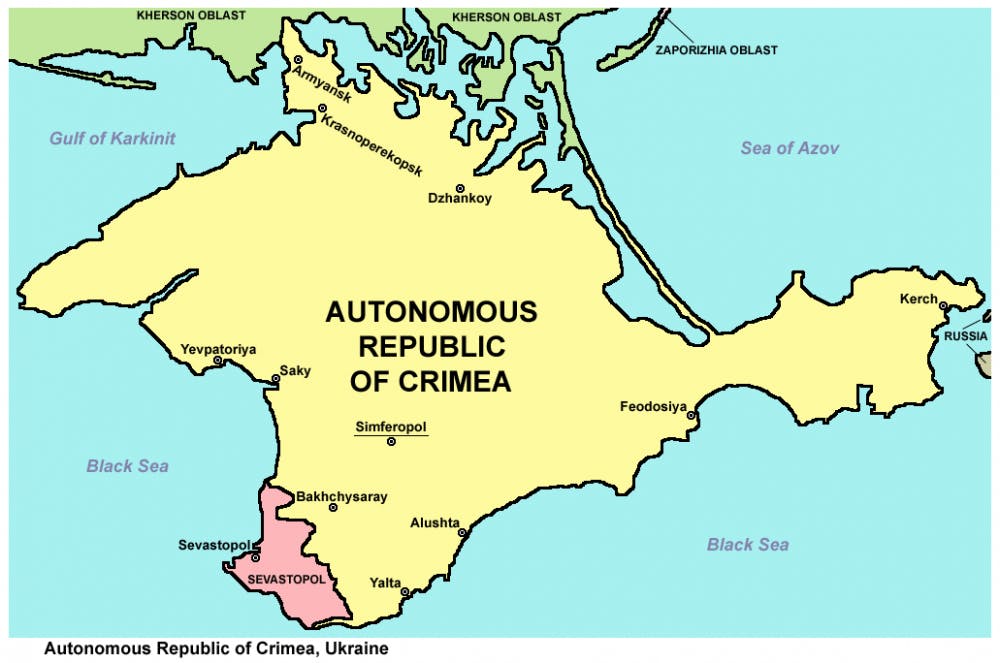The Trump Administration has made clear its strong support for Ukraine in its ongoing war with Russia. Though President Donald Trump himself has been fairly reticent speaking out for Ukraine, he has made a tepid statement of support. Either way, it is likely that the United States’ policy on the conflict in Ukraine will remain mostly unchanged. The central pillar of this policy is economic sanctions which will only be lifted when Crimea is returned to Ukraine. There is some hope the sanctions will force Russia to give back Crimea and end the conflict. We need to be ready to keep these sanctions for decades to come — Crimea is not returning to Ukraine anytime soon.
There are realist, geopolitical reasons Russia does not want to give up Crimea. Occupying Crimea gives Russia a valuable warm water port in the Black Sea. It also gives Russia the ability to project its air power more effectively in the region and even into the Middle East. Ukraine is now an openly hostile state with Russia and giving back Crimea would be strengthening an openly hostile neighbor. Giving back Crimea would also be a sign that Russia would have a hard time managing domestically and internationally.
Sanctions are not enough to push Russia to return Crimea. Russia’s economy is not doing well right now — the ruble has lost significant value and Russia’s GDP has fallen. But these economic problems are largely coming from low oil prices, rather than sanctions. This is not to say the sanctions are having no effect, but the effect appears deceptively strong right now. As soon as the price of oil goes back up, Russia will start to grow economically again, making the effects of the sanctions even less pronounced.
The sanctions actually give Putin significant political cover for internal problems. Instead of having to take full responsibility for the recent economic downturn, he can point to the “West” as attacking Russia. Putin can use the sanctions as a shield to deflect criticism that might undermine his rule and the logic of taking Crimea. This shield is working — Putin’s extremely high approval rating demonstrate that the Russian people do not begrudge the effect of the sanctions on the country.
Russians also love that Putin returned Crimea to them. Crimea is a vacation spot for thousands of Russians every year, many Russian families can speak fondly of their time there. The region is has also been part of Russia for hundreds of years. Crimea only became part of Ukraine because of a political deal by the then leader of the Soviet Union Nikita Khrushchev — Ukraine was still part of the Soviet Union at the time, so giving away Crimea was not extremely significant. Today, Crimea is made up of a majority Russian population. All of this is to say Russians truly feel that Crimea is part of their culture, heritage and country.
The United States is on track to a familiar situation as it is was with Cuba. These sanctions will only serve to push the United States and Russia further apart while disproportionately hurting poor Russians. I am not advocating lifting the sanctions — the unprovoked land grab that Russia made should be punished and condemned. But we also need to see the situation as it is, and that means recognizing that Crimea is not going to return to Ukraine anytime soon. While this is like Cuba in many ways, it is also much harder to maintain the will to hold sanctions against one of the largest countries in the world. Citizens and leaders of the United States need to be resolute in their opposition to Russia, and we need to hold on to this resolution for a while.
Bobby Doyle is an Opinion columnist for the Cavalier Daily. He may be reached at opinion@cavalierdaily.com.





